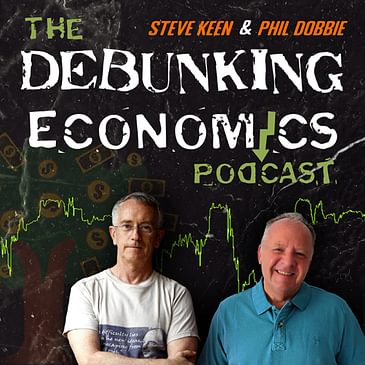The UK Chancellor Jeremy Hunt delivered what is almost certainly his last budget, promising the usual stuff – more investment, more jobs, better public services and lower taxes. And, miraculously, all of this will be achieved by lowering government spending. Despite the rubbery figures, Steve Keen argues that the budget ignores the key principle, that you can’t increase GDP if the government is cutting back on money creation by trying to reduce its “deficit”. A get-out clause on that would be if the country was to see a sudden increase in the export/import ratio. That is in the budget figures, without any explanation as to how that’ll happen. So, what does a Steve Keen UK budget look like?
Hosted on Acast. See acast.com/privacy for more information.

